Welcome to a green revolution! Have you ever wondered about the state of our planet and how our consumption habits might be contributing to its current environmental crisis? Well, you’re not alone. Many consumers and business owners are now paying greater attention to this global concern, leading to an explosion in the demand and supply of eco-friendly products. With this in mind, let’s dig deep into the burgeoning market of eco-friendly products, examining current trends, technological advancements, and challenges.
Eco-friendly, in simple terms, means products that do not harm the environment whether in their production, use or disposal. In other words, these products help conserve resources like water and energy, reduce emissions and contribute to a safer, cleaner environment. From household items to fashion, food, and automobiles, the concept of environmentally friendly or ‘green’ products has permeated into almost every industry imaginable.
💚 Being Eco-friendly isn’t a fad or trend, it’s a lifestyle change.

Across the globe, a wave of environmental consciousness is gently nudging customers towards a more mindful path, where eco-friendly and sustainably sourced items are cradled in their shopping baskets, propelled by a confluence of societal and economic factors. This blossoming environmental awareness intertwines delicately with health consciousness, as people, with eyes wide open to the realities of planetary and personal wellness, subtly shift their shopping habits. It’s a movement towards goods that whisper promises of a cleaner world and a healthier self.
In parallel, governments, acting as guardians of societal welfare, weave a web of regulations that gently coax the market away from products that sneer at environmental concerns. These rules, arising like protective barriers, nurture the growth of a sector that holds sustainability as its beacon. It’s a collective stride towards minimizing the usage and impact of goods that scoff at our planet’s wellbeing.
In the corporate world, responsibility is blossoming into action, as companies, recognizing the footprints they leave on the Earth, begin to tread lightly, investing in green alternatives. It’s an embracing of corporate social responsibility that sees businesses whispering to the world about sustainable practices and products that hug rather than harm our planet.
Yet, within this gentle move towards sustainability, powered too by technological advancements and innovations that further propel the eco-friendly market, challenges linger like stubborn shadows. The path, though brightly lit by intention, is muddied by the often-hefty price tags attached to eco-friendly products and blurred by the phenomenon of “greenwashing,” where truth is smeared by misleading claims of environmental kindness.
Understanding the latest trends in eco-friendly products is not just useful for consumers aiming to lead a sustainable lifestyle, but it also serves to guide businesses towards more responsible practices. Let’s delve into an exciting journey through the world of eco-friendly products, from fashion to food.
Sustainable coffee addresses critical environmental and social issues. Conventional coffee production often involves deforestation and exploitative labor practices. A sustainable approach ensures the conservation of biodiverse ecosystems and provides fair wages and safe working conditions for laborers. Thus, choosing sustainable coffee supports ethical practices, protects our environment, and uplifts communities involved in its production, fostering a healthier planet and fair global trade.
Highlighting Higher Grounds Coffee, an exemplary model of eco-consciousness in the coffee industry. This certified B Corp company is unwaveringly committed to sustainability throughout its supply chain. From the initial stage of sourcing beans to delivering them, they adhere to environmentally and socially responsible practices. This commitment encompasses partnerships with charities, provision of living wages via fair trade programs, and even eco-friendly delivery methods such as utilizing bikes for bean transport. Their holistic approach to sustainability ensures that every cup of coffee brewed is a testament to responsible business practices that prioritize both the planet and its people.

Upcycled snacks have made a significant splash in the sustainable food market by transforming what would be waste into delightful, nutritious products. This category focuses on repurposing food byproducts or misshapen produce that are typically discarded, addressing the staggering issue of food waste. According to data, approximately 133 billion pounds of food end up in landfills every year.
One striking example in this sector is Pulp Pantry, a brand that ingeniously utilizes leftover vegetable pulp from juicing to create crispy, flavorful chips. This not only provides a tasty snack option but also aligns with ethical consumption by mitigating waste and offering a product that contributes to a circular economy in the food industry.

Incorporating sustainability into every facet of our lives, including our workspaces, Oakywood emerges as a beacon of conscientious craftsmanship in creating home office tech accessories. Engaging with nature, not merely as a source but as a partner, Oakywood crafts accessories utilizing natural materials like wood, cork, and wool, echoing an inherent respect for ecological balance. Their ethos stretches beyond production into restorative environmental practices: for every uniquely handcrafted item sold, one tree is planted.
With over 87,000 trees already planted at the time of publication, Oakywood isn’t simply a brand; it’s an embodiment of a symbiotic relationship with nature, wherein commerce, craft, and conservation intertwine. Thus, it delineates a pathway where our professional environments are not merely spaces of productivity but also realms where sustainability thrives, nudging us towards a future where business and biodiversity coalesce in a mutually enriching tapestry.

In the arena of sustainable energy utilization, EcoFlow stands out, ushering in an era where clean generators, portable solar panels, and power chargers don’t merely serve as utilities but as catalysts for broader eco-conscious change. EcoFlow diligently manufactures devices that hinge upon the inexhaustible energy of the sun, providing renewable means to keep various gadgets operable in an eco-friendly manner, even whilst on the move. With a meticulous approach towards harnessing renewable energy, these gadgets not only alleviate our dependency on non-renewable power sources but also underscore a seamless blend of convenience and conservation.
Thus, EcoFlow doesn’t just power devices; it powers a movement towards sustainable energy utilization, underscoring that technology and ecological mindfulness can indeed coexist harmoniously, propelling us towards a future where our energy consumption is in harmony with the planet’s well-being.

Embracing sustainability, Manduka, a company specializing in yoga gear, has set a striking example of integrating eco-friendliness into the fitness domain. The company manufactures yoga mats made from biodegradable natural rubber, steering clear from non-biodegradable materials that contribute to landfill waste. The mats are also dyed using non-AZO dyes, which are environmentally safer than their AZO counterparts, showcasing Manduka’s meticulous care for both product quality and ecological impact.
Furthermore, the brand extends its sustainability efforts by offering a mat recycling program, ensuring that products at the end of their life cycle are not merely discarded but are reintroduced into the production cycle. Manduka’s practices reflect a thorough commitment to reducing environmental impact in the production and disposal of fitness gear, encapsulating a future-forward approach to sustainability in the industry.
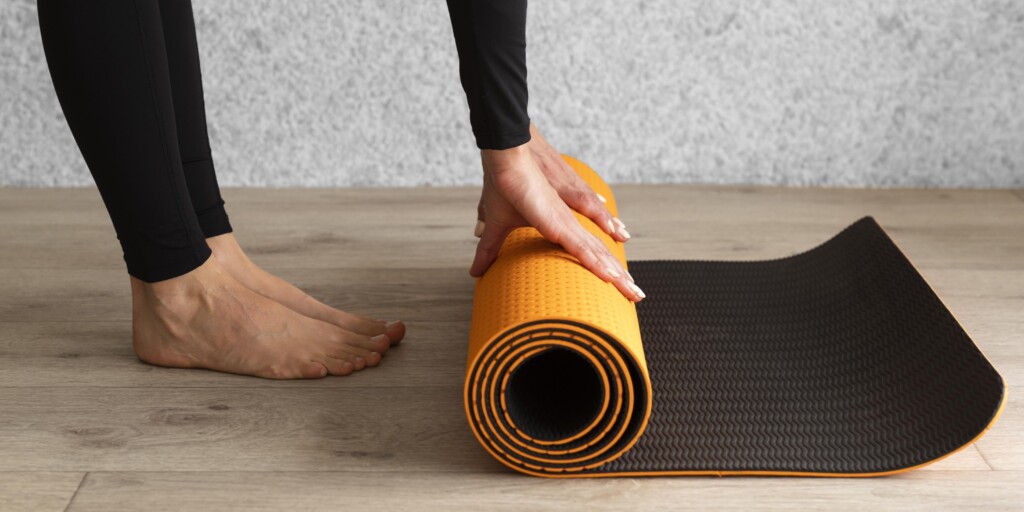
Navigating through the intricate pathways of sustainability, Five12 has manifested a remarkable stance in the sportswear sector by crafting UV-protected and moisture-wicking sportswear from recycled materials. This innovative brand harnesses materials like discarded fishing nets, used water bottles, and windshields, converting them into high-quality, durable sportswear. Not only does this initiative contribute to reducing plastic waste in the environment, but it also offers a sustainable alternative without compromising the functionality and quality that athletes seek.
By transforming waste into wearables, Five12 not only exemplifies a potent solution to plastic pollution but also demonstrates that sustainability and performance can indeed go hand in hand. Thus, Five12 stands out as a brand that aligns athletic aspirations with a robust commitment to environmental conservation and resource efficiency.

Imagine riding the crest of a wave of environmental consciousness. That’s precisely what the beauty industry is doing as it takes a remarkable leap towards “clean beauty”. The term refers to products that are carefully crafted, free of harmful chemicals, and presented in eco-friendly packaging. Even beauty vanguards such as Sephora have carved out significant space for collections flagged as ‘clean’. This evolution not only highlights the dedication of brands in curating offerings that promote healthier skincare, but also mirrors a wider industry recognition of consumers’ yearning for goods that harmonize with their values.
Sephora’s Clean Beauty offerings are not just meeting this growing passion for mindful skincare head-on; they are also advancing a sustainable beauty economy. Imagine a future where beauty and wellness thrive in perfect harmony with our planet. This is the world these eco-conscious companies are diligently crafting for us all.

In an era where consumers are becoming increasingly conscious of the impact of their choices, the personal care industry is evolving to prioritize sustainability at its core. This trend extends beyond mere product formulation to encompass ethical sourcing, eco-friendly packaging, and corporate social responsibility initiatives.
For instance, companies like Tsuno are leading the way, producing personal care items such as tampons from bleach-free organic cotton. But what truly distinguishes such brands is their broader commitment to making a difference; with every Tsuno purchase, a portion is dedicated to supporting girls’ education in Sierra Leone and Uganda. As the sustainable personal care movement gains momentum, it’s evident that for many companies, taking care of consumers now means taking care of the planet and its inhabitants too.
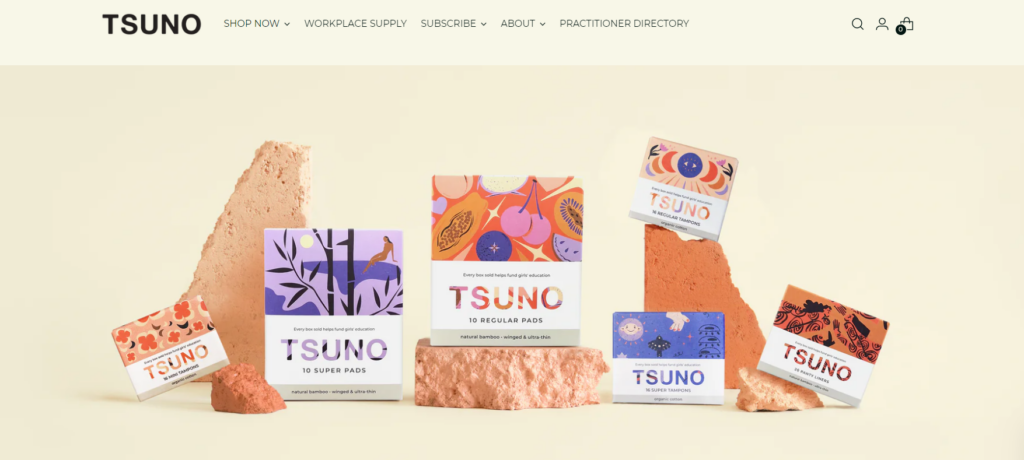
Diving into the fascinating intersection of dental care and sustainability, eco-friendly oral hygiene is emerging as a worthy trend in the world of wellness. The transition to green practices within this sphere crucially comprises a shift in mindset around material selection, product longevity, and waste management.
In this domain, VirtueBrush stands tall as an innovator. Not only does the company offer toothbrushes and hair brushes crafted from eco-conscious bamboo, it further intuitively extends its green initiatives by implementing tree-planting schemes aimed at counterbalancing its impact. With this approach, the brand, and others of the same ilk, are carving a route that allows you, the consumer, to maintain your oral health without jeopardizing the wellbeing of our planet. This demonstrates a harmonious blend of personal grooming and ecological stewardship.

In a world where consciousness about waste and sustainability is on the rise, sustainable home and kitchen supplies have found their vital place in the market. This trend is not merely a nod to eco-friendliness but a genuine embodiment of utilizing waste in a manner that’s both functional and aesthetically pleasing.
A paragon of this movement is Green Glass, a company that specializes in transforming discarded glass bottles into reusable, artistically etched drinking glasses, epitomizing the concept of upcycling. This approach not only diverts waste from landfills but also provides consumers with unique, sustainable options for their homes. It’s an intersection where creativity meets responsibility, crafting products that serve everyday use while echoing the principles of sustainability and waste reduction.

In the context of a growing global awareness regarding plastic pollution, the advent of reusable utensils has burgeoned into a significant eco-friendly trend. Spearheading initiatives to minimize single-use plastic, innovative companies like FinalStraw are making notable strides.
FinalStraw, for instance, offers a compact, collapsible, stainless steel reusable straw, ingeniously designed with a portable carrying case and cleaning brush. This initiative is not merely a product; it’s a statement against the disposable culture that pervades our contemporary lifestyle. By introducing convenient, portable, and reusable alternatives, FinalStraw aids consumers in making eco-conscious choices without sacrificing their convenience, thereby paving the way towards a more sustainable future in our everyday dining and drinking experiences.

The intersection of gift-giving and supporting vital causes has crafted a beautiful nexus where consumers can simultaneously bring joy to their loved ones and contribute to impactful causes. A leading example within this benevolent trend is the World Wildlife Fund (WWF). WWF’s symbolic “adoptions” create a meaningful gift-giving experience, offering plush toys and certificates that metaphorically adopt an endangered species, while the proceeds directly bolster the organization’s various conservation initiatives.
The duality of providing a tangible gift while also contributing to the protection of endangered species and their habitats fosters a poignant and purposeful connection between the giver, the receiver, and the cause being supported. This approach marries commerce and charity harmoniously, illustrating that conscientious consumption can indeed drive positive change on a global scale.
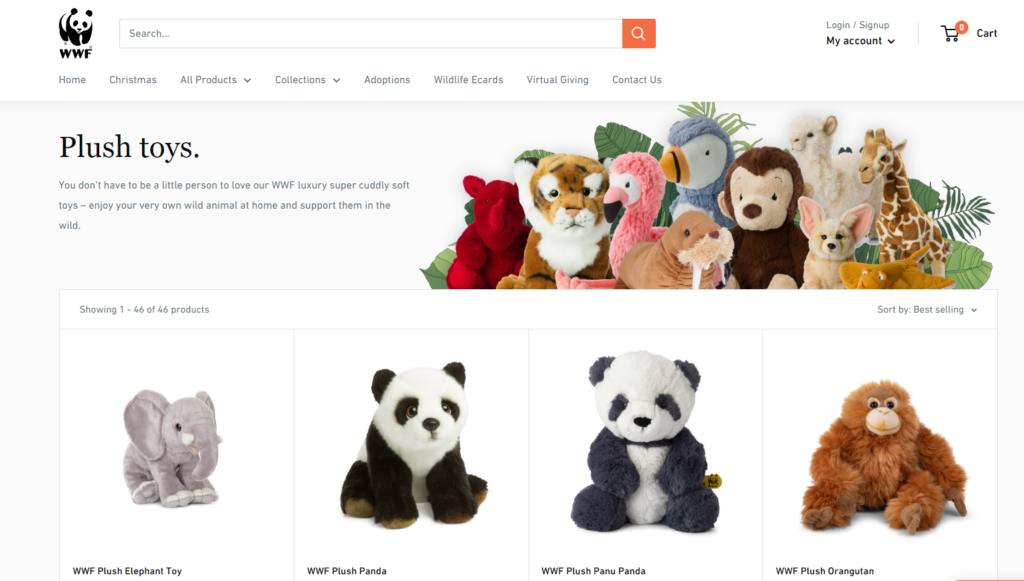
Embracing a twofold mission of offering plant-based nourishments and supporting animal welfare, businesses in this sector harmonize culinary enjoyment with benevolence. A noteworthy exemplar is Herbivorous Butcher, a company that merges its vegan meat business with active engagement in animal rescue and advocacy through its accompanying farm sanctuary.
Not merely limited to offering an array of delicious plant-based products, the business additionally earmarks a portion of the proceeds from certain merchandise sales directly to the sanctuary. Thus, consumers are endowed with the joy of savoring scrumptious vegan offerings while concurrently supporting a cause that directly aligns with ethical, cruelty-free living. The model extends an impactful means through which commerce, culinary enjoyment, and charity seamlessly intertwine, underpinning a holistic consumer experience that nurtures both the body and the ethical spirit.
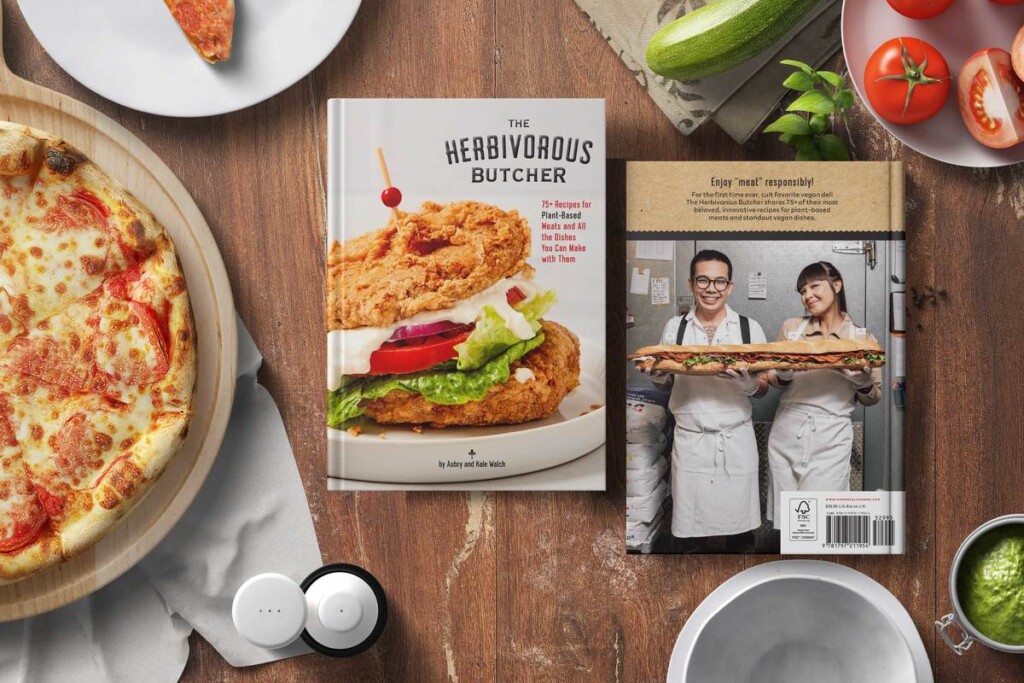
In the realm of fashion, a discernable pivot towards ethical production and social responsibility has increasingly become en vogue. A compelling instance of this trend is embodied by Rice Love, a brand crafting pouches and accessories from reclaimed rice bag burlap. However, the brand does not solely halt at sustainable production methods; it interweaves its business model with a genuine commitment to alleviate hunger.
With every purchase made, Rice Love donates a bag of rice to a family in need, thereby transcending the conventional boundaries of retail. This innovative approach not only satiates the consumer’s desire for unique, sustainably produced accessories but also enriches their purchasing experience with the knowledge that their acquisition tangibly contributes to mitigating hunger. This synthesis of ethical production and direct charitable action is a potent exemplar of how modern businesses can elegantly intertwine commercial success with palpable social impact.
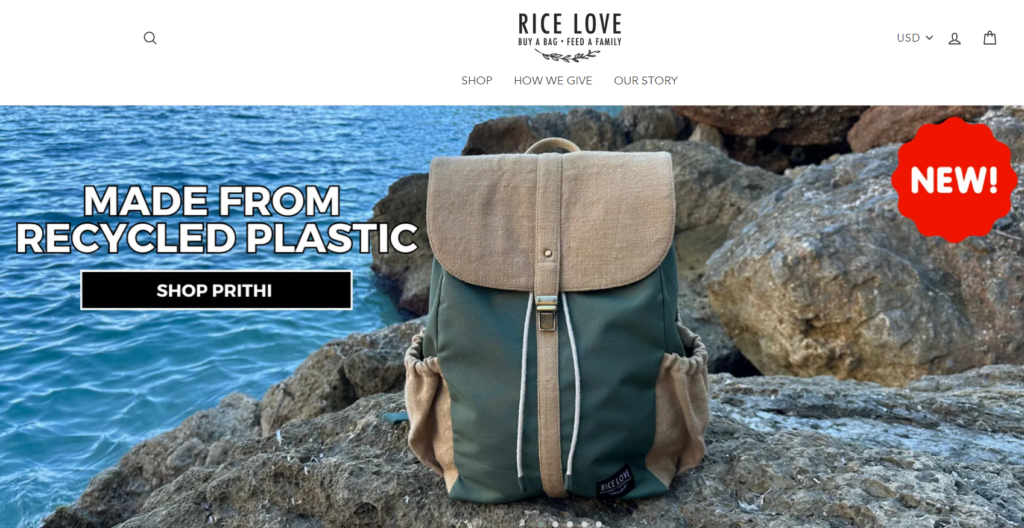
Navigating through the landscape of eco-conscious trends, EcoJot emerges as a beacon in the domain of sustainable children’s products, meticulously crafting notebooks and paper products while embracing stringent ecological principles. Made from 100% post-consumer recycled paper, EcoJot’s offerings are not only a nod towards minimizing environmental impact but are also aesthetically pleasing, marrying function and form in a child-friendly manner.
However, EcoJot’s commitment to the environment doesn’t merely reside in its production methodologies; it permeates into a broader socio-ecological involvement. A portion of their sales is thoughtfully channeled to support various charities, reinforcing the message that the procurement of goods can be symbiotically beneficial both for the consumer and the broader global community. EcoJot effortlessly blends sustainability with philanthropy, ensuring that the purchase of a simple notebook transcends its primary function, evolving into a small, yet meaningful, act of kindness towards our planet and its inhabitants.

♻️ These eco-friendly product trends span various industries, from food and beverages to personal care, home supplies, and fashion. Companies across these sectors are incorporating sustainable practices and materials into their products, while also often contributing to social and environmental causes, reflecting a holistic approach to business that is both ethical and eco-conscious.
As awareness about climate change and environmental sustainability grows, the market for eco-friendly products has seen a significant uptick. According to a report by Grand View Research, the global eco-friendly products market size is expected to reach $259.7 billion by 2025, exhibiting a CAGR of 10.1% from 2019 to 2025. This expansion is not confined to a single sector but is widespread across various industries from food and beverages to personal care, home supplies, and fashion.
Consumer behavior is showing a distinct shift towards responsible purchasing, with 71% of global consumers willing to pay more for sustainable goods, as per a Nielsen survey. This shift is particularly evident among millennials and Gen Z, who are leading the charge in eco-conscious buying. A study from First Insight found that 73% of Gen Z is willing to pay more for sustainable products, higher than any other generation.
The sustainable trend is also impacting job markets. As businesses focus more on sustainability, new roles and departments are emerging that concentrate solely on sustainability initiatives. The demand for professionals in these areas has increased by 13% since 2015, according to LinkedIn.
Government policies are further fuelling this trend. For instance, the European Union has committed to making all plastic packaging recyclable or reusable by 2030. Such regulations are pushing companies to innovate and invest more in sustainable practices and products.
Corporate responsibility is another driver. Companies like Tesla with their electric vehicles or Unilever with their Sustainable Living Plan are not only capitalizing on the sustainable wave but also setting examples for other companies to follow. They showcase that profitability and responsibility can coexist, breaking the traditional belief that “going green” is often at the expense of profits.
In summary, the eco-friendly product market is experiencing unprecedented growth driven by consumer awareness, corporate responsibility, and government policies. Supported by robust data, this trend is expected to continue, offering both challenges and opportunities for businesses and consumers alike as we move toward a more sustainable future.
Stay a while and read more posts like this
Let’s devote a few minutes to envision our world in 2100. It’s quite a thought experiment, given the dramatic transformations our planet has experienced in...
With climate change looming large, the world is embarking on a quest for solutions to heal our ailing planet. Solar geoengineering emerges as a burgeoning field,...
Taking on parenthood comes with unique choices that factor in more than just our family’s immediate needs. For modern parents, who are not just guardians of...